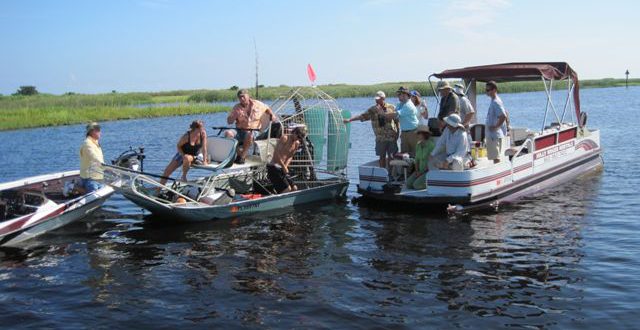Water Institute Graduate Fellows Program: 2011 Cohort
Watershed Management in the face of EPA's New Numeric Nutrient Criteria for Florida Waters
The goal for the inaugural Water Institute Graduate Fellows cohort was to develop the new knowledge, and creative engineering, management and policy solutions needed to establish and achieve numeric nutrient criteria (NNC) for Florida’s waters. The education and research of each Fellow evolved from specific problems and research questions related to management of Florida’s water and watersheds under NNC. The unique cross-disciplinary environment of the program allowed an integrated whole that reflected disciplinary facets associated with this complex problem. Project components included Paleolimnology, Nutrient Best Management Practices, Hydrologic Processes, Riverine Nutrient Processing, Ecologic Consequences of Nutrient Enrichment, Environmental Law, Environmental Policy and Governance and Systems Modeling. Elements of the program included:
Education – We cultivated an educational experience to complement the disciplinary focus of each student’s research. The educational experience blended experiential learning, academic course work, research, training and service. Each student was required to take a set of interdisciplinary core courses. A special seminar, involving both faculty and students, focused on social, ethical and scientific domains as they relate to the program’s focus.
Research – Each Fellow had a disciplinary home and developed a dissertation around a topic and disciplinary facet of interest to them while contributing to the team’s overall research theme of watershed management and policy in the face of Numeric Nutrient Criteria. Research was conducted in an intellectual environment of shared learning that fosters integrative thinking and cross-training in engineering and the biophysical and social sciences. Each participating faculty and fellow brought their disciplinary expertise to the team and were fully committed to developing an integrative, cross-disciplinary approach to problem solving and management.
Service – The project fostered ethical responsibility and civic involvement through core coursework and a special seminar. Undergraduate students were involved in classes, research and field activities under the mentorship of Fellows. Fellows engaged in outreach activities as part of the Water Institute’s Programs and Symposia.


